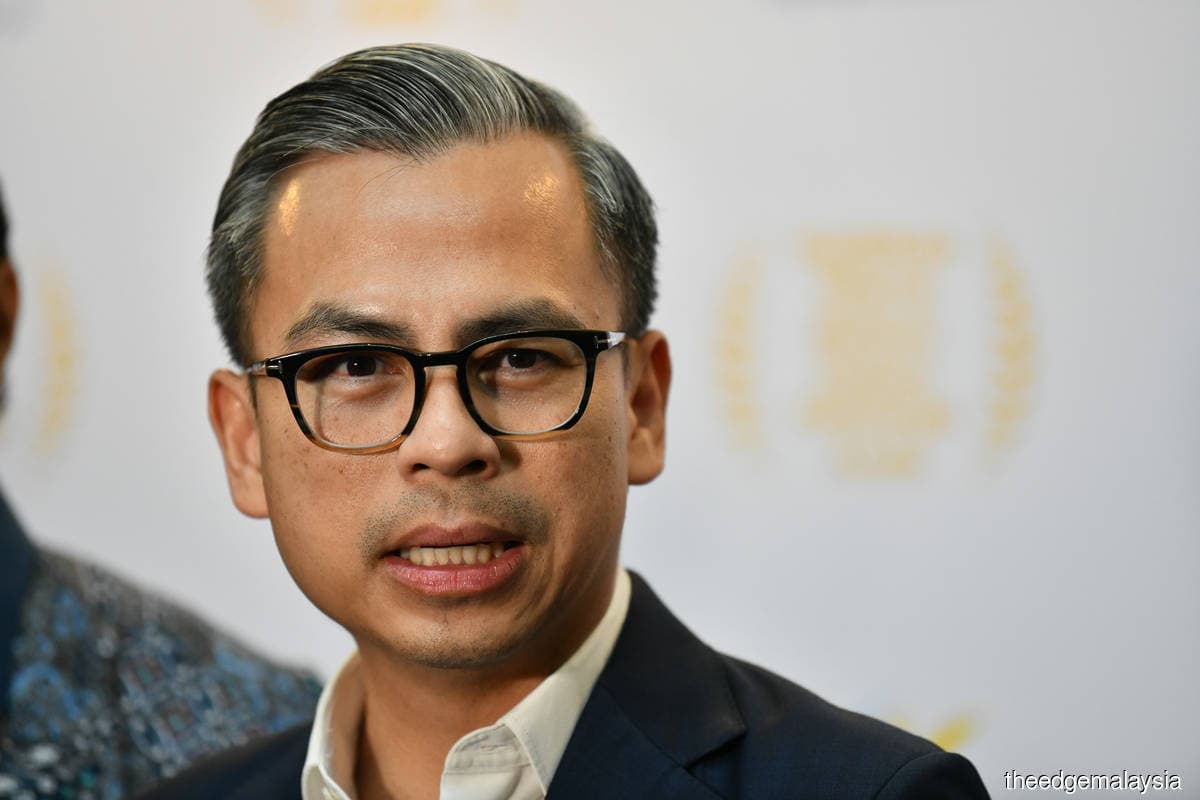
Asked if the government had chosen to give up control of critical infrastructure to the profit-driven private sector in the DNB stake divestment case, Fahmi merely said: “I think this is a good way forward” before leaving the press conference.
KUALA LUMPUR (Dec 18): Putrajaya will maintain its special share in Digital Nasional Bhd (DNB), the entity tasked to roll out the 5G network to achieve up to 80% populated coverage before 2023 ends, after executing a put option to divest all its shareholdings to mobile network operators (MNOs), according to Communications Minister Fahmi Fadzil.
“[The special share] is still there,” he told reporters when asked about the rights of the Ministry of Finance (MOF) after exercising the put option to give up all DNB’s stake.
Earlier this month, Fahmi witnessed the signing of an agreement by the MOF to divest of a 70% stake in DNB to five MNOs — CelcomDigi Bhd, Maxis Bhd, U Mobile Sdn Bhd, Telekom Malaysia Bhd and YTL Power International Bhd — with each taking up a 14% stake.
Under the agreement's initial stage, the MNOs will each provide a RM233.23 million zero interest loan to DNB, while each of them will take up a minimal 100,000 new shares for RM100,000.
MOF will have a put option to sell the entire 500 million shares in DNB to the five MNOS at RM500 million, with the MNOs taking over the RM450 million advance that MOF had provided to DNB previously.
In short, based on available public disclosures, the MNOs will each be paying RM100.1 million for the eventual acquisition of a 20% stake in DNB — which has invested RM16 billion in 5G network infrastructure — and a total advance of RM323.23 million.
Govt will be 'quite consultative'
As to whether the government has the power to veto decisions made by the MNOs-controlled DNB in the future, Fahmi said the government will be “quite consultative” in its dealings with MNOs.
“Throughout the entire process, perhaps by being engaged in constructive dialogue, we have been able to achieve so much. Who would have thought a first-term minister would be able to assist all of the MNOs, those that are publicly listed and have a total market cap of some RM140 billion. Yet we are able to find that middle ground and achieve so much in such a short time.
“So, I believe the consultative process is key. Because at the end of the day, better communications is not only better for the rakyat, but also for commercial interests — perhaps better profits,” he said.
Asked if the government had chosen to give up control of critical infrastructure to the profit-driven private sector in the DNB stake divestment case, Fahmi merely said: “I think this is a good way forward” before leaving the press conference.
The initial intention under the 5G Single Wholesale Model (SWM) was to have a government-controlled entity — DNB — as the wholesaler to roll out the next-generation network nationwide, and leasing its network capacity at lower costs to MNOs, who would share the infrastructure without needing to fork out big capex outlays while focusing on competing on a level playing field to service retail customers.
The transition to a dual network model (DWM), said to break DNB's monopoly and to create redundancy to avoid a single point failure, raises the question of necessity, as network quality was not any better during the 4G era when multiple MNOs rolled out infrastructure simultaneously.
Critics of the DWM have also pointed to how a similar monopolistic model has been working well in the electricity sector, a more critical utility segment, whereby there is only one national grid, which is owned and operated by the state-controlled Tenaga Nasional Bhd.
